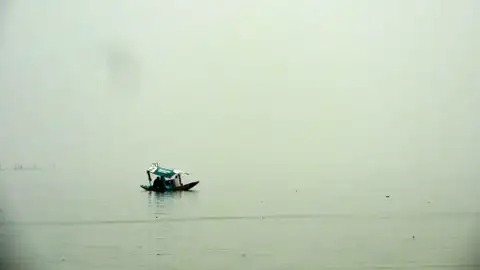SRINAGAR, Jan 27: While the plains of J&K’s Jammu division continued to have decent weather, Kashmir was once again hit by an intense cold wave on Monday, with the minimum temperature falling several degrees below the freezing point.
The minimum temperature in Srinagar city was – 5.5 degrees Celsius, while in Gulmarg and Pahalgam it was minus 5.2 and 6.4 degrees, respectively, according to officials from the Meteorological (MeT) department.
In comparison, the minimum temperature in Jammu city was 5.8 degrees, while the minimum temperature in Katra, the base camp town of Mata Vaishno Devi shrine, was 8.2, Batote was 4.7, Banihal was 1.5, and Bhaderwah was 1.4.
People were observed setting tiny fires near the frozen water pipelines in Srinagar city and other Valley towns in an attempt to defreeze them. In Srinagar, very few people ventured outside in the morning and instead stayed inside to avoid the early chill.
In the morning, it was hard to obtain transportation, but as the sun rose, the roads began to come alive.
According to the MeT department statement, the weather is expected to be mostly cloudy with light rain from the evening of January 28 to January 31.
The “Chillai Kalan,” a 40-day period of extreme winter cold, began on December 21 and will conclude on January 30. Even in the Kashmir Valley lowlands, snowfall typically lasts until the beginning of March, but the weather in the Valley gradually improves starting on February 1.
In Jammu, where Sunday’s high temperature was 21.8 degrees Celsius, the weather has already improved. People are wearing dresses for the early summer and have begun packing their winter clothing. Wheat fields have turned lush green as the Rabi crop promises to yield rich dividends for the hard-working farmers of the Jammu division.
Doctors in Kashmir have advised residents, particularly youngsters and the elderly, to avoid prolonged exposure to frigid temperatures as this might cause blood vessel constriction and myocardial infarction. Heart attacks and heart failure are common in people who have had myocardial infarction.




